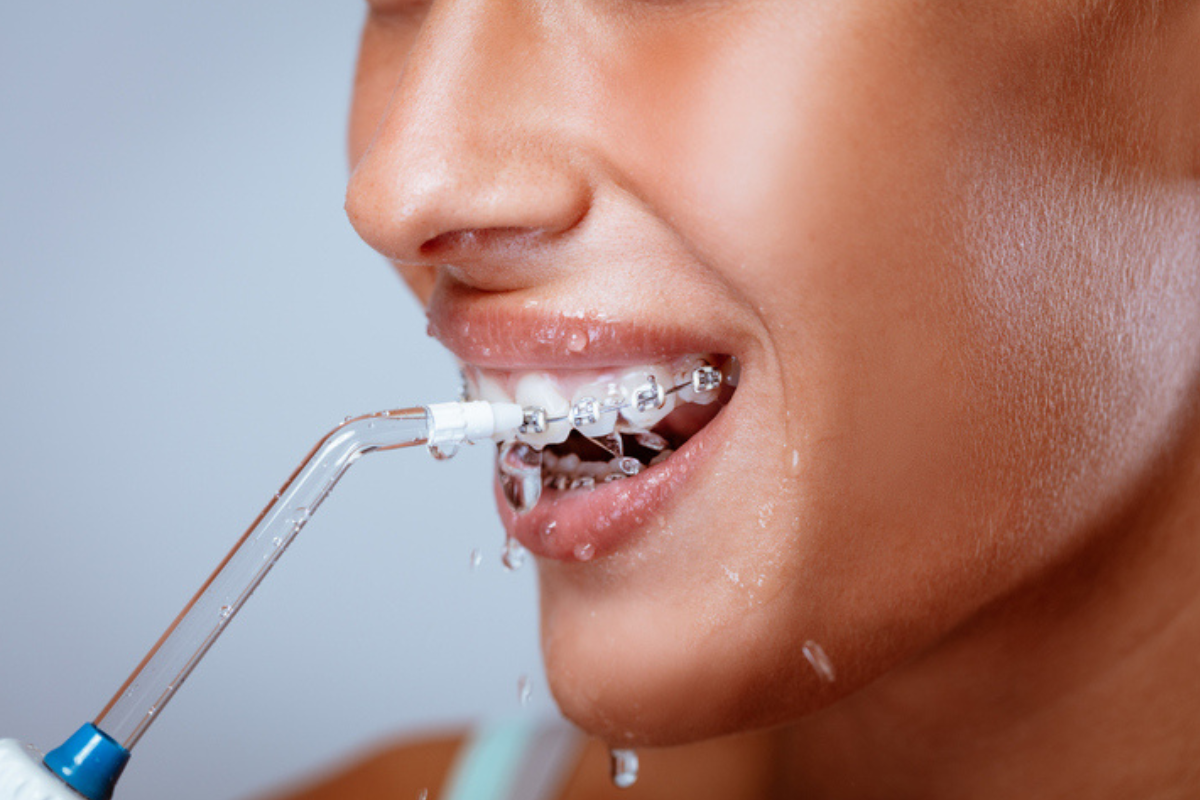Should You Use a Water Flosser?
 posted
on 5/3/2024
in
General
posted
on 5/3/2024
in
General
Good dental hygiene is of the utmost importance; flossing is a key part of a healthy regimen. Flossing helps prevent cavities and gum disease. Flossing also removes plaque, bacteria, and food from the areas that your toothbrush can’t reach, such as between the teeth and along the gumline, enabling you to maintain good oral health.
Flossing, while a healthy habit, can also be a pain to do. Thankfully, technologies like the water flosser can make taking care of your teeth more convenient. Let’s explore what a water flosser is and if you should be using one.
What Is a Water Flosser?
Water flossers, also known as dental water jets and oral irrigators, are handheld devices that clean your mouth using a pressurized stream of water. These devices are great for cleaning the areas that your toothbrush can’t get to, like between your teeth and below the gumline. Water flossers usually come with a motor, pump, water reservoir, and special water flosser tip for precise cleaning.
Is a Water Flosser Better Than Regular Floss?
When it comes to water flossers, you may be wondering if they’re better than regular floss. The truth is that when they are used correctly and every day, water flossers are just as effective as string floss. So, whether or not you use one depends on personal preference. Water flossers may be a better fit for you if you find string floss hard to use, don’t like it, or don’t floss often. In terms of benefits, water flossers are:
- Easy to use
- Gentle on the gums, making them ideal if you have sensitive gums
- Don’t get caught on your teeth’s sharp edges like string floss does
- A great flossing option for those with dexterity issues, like arthritis
- Helpful to ensure a good clean for those who have dental implants, bridges, crowns, and braces
- Great for a more thorough cleaning, as they can get rid of any debris that string floss doesn’t reach
- Helpful in reducing the risk of gingivitis and improving gum health
Keep in mind that water flossers don’t replace regular brushing. You may also want to use water flossers along with string floss or other alternative flossing tools, like threaders and interdental brushes, for a more thorough clean.
Disadvantages of Water Flossers
While water flossers offer many benefits, there are some disadvantages to using them. For one, water flossers are more expensive than regular floss. They also may not remove all of the plaque, debris, and bacteria on and between the teeth and gumline. Some people also find water flossers inconvenient, as they can be messy, aren’t super portable, have a learning curve, and take more time to use compared to regular floss.
How To Use a Water Flosser
Instructions vary based on the type of water flossers you choose. Typically, you first need to fill the device with water and select the tip and pressure setting that you prefer. Then, run the tip of the water flosser along your gumline and between your teeth to remove any leftover debris. Use your water flosser over a sink and hold your mouth slightly open to let the water flow out.
Get Excellent Dental Advice and Care at Kimball & Beecher
A good dental care routine is just part of the equation when it comes to taking care of your teeth. Going to the dentist regularly can help you stay on top of your oral health. During routine dental visits, your dentist will do a deep clean and examine your teeth for any issues, like cavities, which can get worse if left unchecked.
At Kimball & Beecher, our team of qualified, professional dentists is ready to help. Contact us at any of our locations or schedule an appointment online today to find relief.